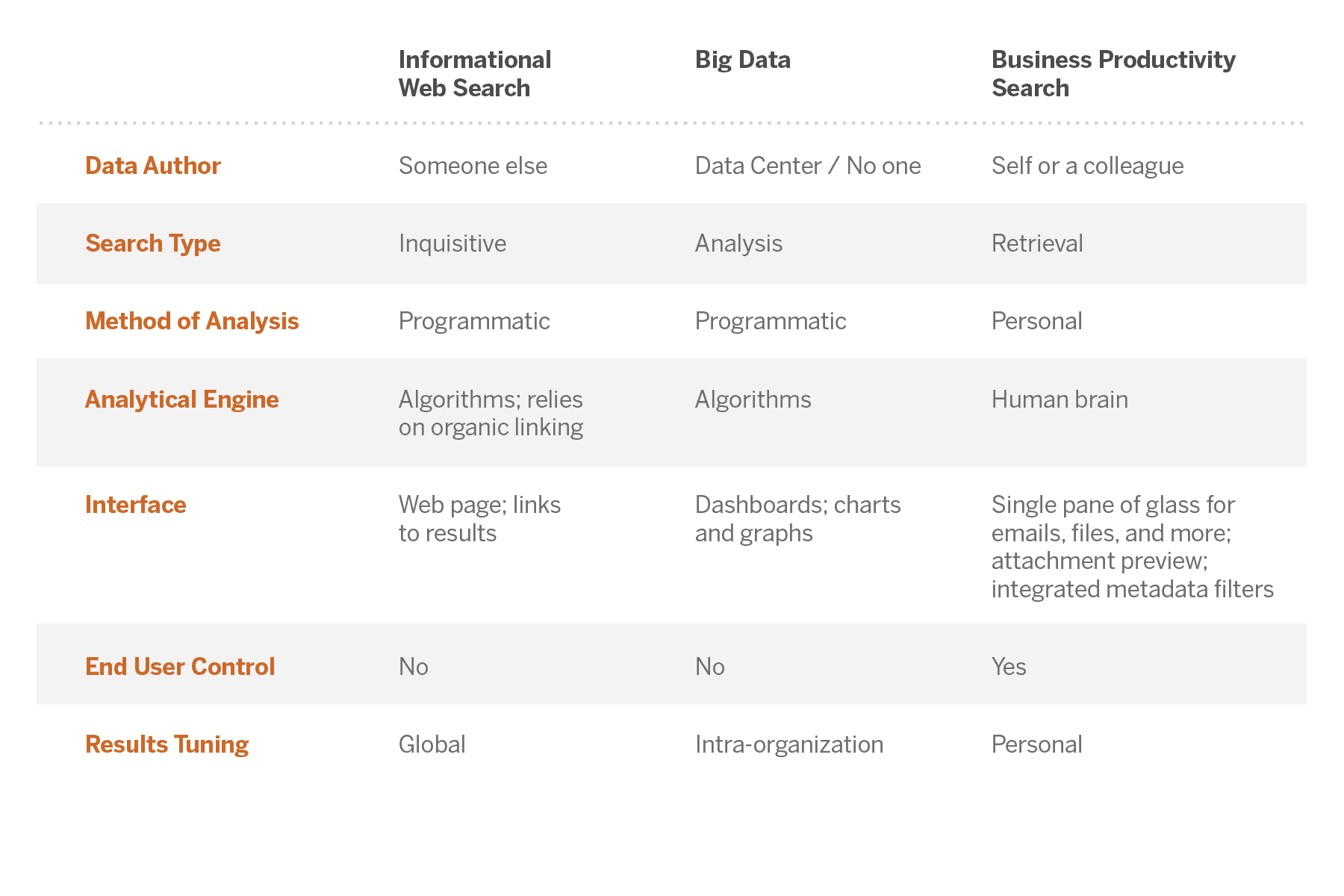by John Patzakis
In my two and half year tenure as CEO here at X1, we have seen tremendous progress and exciting growth with our next generation search solutions: X1 Search 8 and X1 Rapid Discovery. During this time, I have taken the very valuable opportunity to listen to our end users, executive sponsors and key stakeholders in IT about their X1 experience, their input on our product roadmap, and their perspectives on broader enterprise search.
On the enterprise search front, the recurring theme we hear again and again is that outside of the data managed by X1, enterprise search is a source of major frustration for organizations. This is confirmed by survey after survey where the vast majority of respondents report dissatisfaction with their current enterprise search platform. Simply put, the traditional approach to enterprise search has not worked. This is largely because most search solutions deployed in recent years focused on IT requirements — which see search as either a technical project or a commodity —rather than being end-user driven.
At X1, however, many of our customers report real progress with enterprise search, with firm-wide X1 rollouts being major wins at their organization. We believe that X1’s unique focus on the end-user is the key. You won’t find many other business productivity search solutions where the end users drive demand, instead of the tool being imposed on the end-users by IT or systems integrators. We continually hear countless testimonials from our users, at companies large and small who swear by their X1 and cannot imagine working without it. In speaking with industry analysts and other experts in the enterprise search field, this is an almost unheard of phenomenon, where end-user satisfaction with the companies’ enterprise search platform is usually around 10-15 percent, verses the 80-85 percent satisfaction ratio we see with X1.
So in view of this customer and industry feedback, we coined the phrase “business productivity search” to differentiate what X1 focuses on verses most other enterprise search tools, which are typically re-fashioned big data analytics or web search appliances. And the feedback we’ve received on this from end-users and industry experts alike is that this assessment hits the nail on the head. Business productivity search is not big data analytics and it is not web retrieval. It is its own use case with a workflow and interface that is tailored to the end users. X1 provides the end-user with a powerful yet user-friendly and iterative means to quickly retrieve their business documents and emails using their own memory recall as opposed to generic algorithms that generate false positives and a workflow ill-suited to business productivity search.
This analysis is crystalized in the accompanying chart differentiating X1’s approach to business productivity search versus big data analytics and web search.

These points are further explained in our four page white paper: Why Enterprise Search Fails in Most Cases…and How to Fix It. But perhaps the most compelling illustration is this testimonial from 2013 Nobel Prize Winner in Chemistry and Stanford professor Dr. Michael Levitt, who states: “X1 is an intimate part of my workflow — it is essentially an extension of my mind when I engage in information retrieval, which is many times an hour during my workday.” In my opinion, you will not find that level of enthusiasm by end-users for other enterprise search platforms.
And X1 is a platform. Users need a single-pane-of-glass view to all of their information – email, files, SharePoint, archives like Symantec Enterprise Vault, and other enterprise repositories. X1 Search 8 and our enterprise extension X1 Rapid Discovery provides just that – a user-friendly interface to all information that lets workers use their minds to find what they are looking for in an iterative search tailored by the end user.
But the hundreds of thousands of X1 end users know all this. The key takeaway for CIOs and other IT executives is that search is an inherently personal user experience, and the number one requirement, by far, for a successful search initiative is enthusiastic end-user adaptation. If the business professionals in your organization are not passionately embracing the search solution, then nothing else matters.
